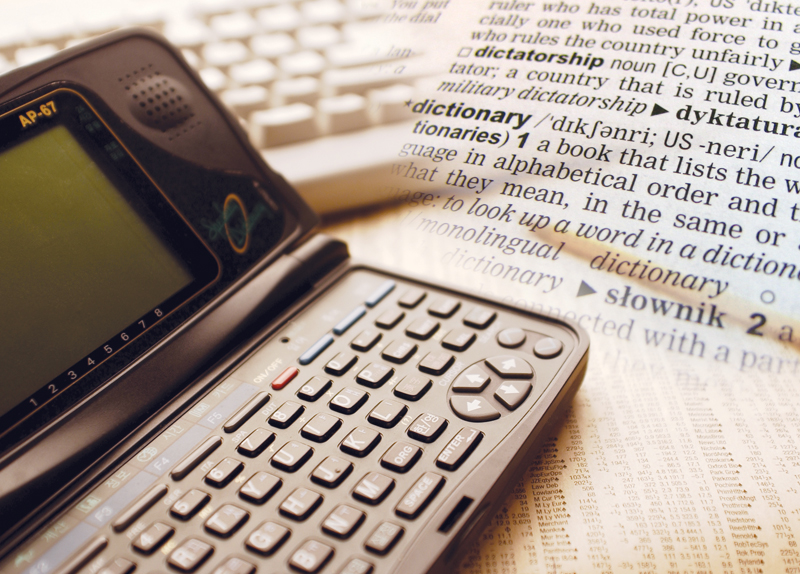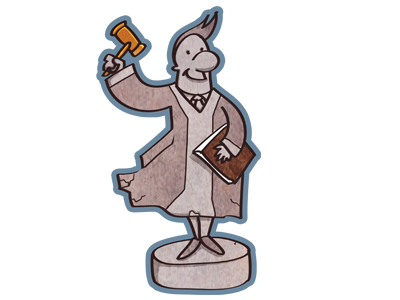 Introduction
IntroductionA dictionary is an important tool for learning new words. Paper dictionaries were the most-used type of dictionary. However, in recent years, electronic dictionaries have become increasingly popular. These days, even most cellphones come with a built-in dictionary. It has also become easy to look up words on online dictionaries. Are electronic dictionaries better than paper dictionaries? This is the question that our debaters will discuss today. Let’s see what Henry and Ashley think about this topic.
 Henry (Constructive)
Henry (Constructive)Electronic dictionaries are better than paper dictionaries. Electronic dictionaries provide definitions quickly and easily. It takes nearly seven times longer to look up a word in a paper dictionary than an electronic dictionary. That is why electronic dictionaries are particularly useful during conversations in a foreign language. Sometimes we need to quickly search for a word to communicate with the other person. This is only possible with electronic dictionaries. Furthermore, electronic dictionaries are easier to use because they are often already installed on cell phones.
 Ashley (Constructive)
Ashley (Constructive) Paper dictionaries are better than electronic dictionaries. Students often pretend like they are using the electronic dictionary on their phones during school. However, they are actually texting with their friends or playing games. Also, it is too easy and quick to search words on electronic dictionaries. Therefore, people do not bother to memorize and learn new words. In comparison, people actually learn new vocabulary when using the paper dictionary because it takes longer to look up words.
 Henry (Rebuttal)
Henry (Rebuttal)Teachers should make sure that all students use their electronic devices for academic purposes. I disagree with you that electronic dictionaries are too easy and quick to use. Students are able to search and learn even more words because electronic dictionaries are easier to use and carry. Most paper dictionaries have up to 300,000 words. Electronic dictionaries often have more than 1 million words. Also, many electronic dictionaries have a speaking function that teaches students how to pronounce the words.
 Ashley (Rebuttal)
Ashley (Rebuttal) Electronic dictionaries give quick definitions. However, paper dictionaries often also give antonyms, synonyms, and examples of how to use the word in a sentence. The additional information found in paper dictionaries actually helps people learn the words. In general, I think that dictionaries are not a good learning tool. How can you have a conversation with someone when you are constantly looking at a dictionary? It is better to ask the other person to speak slower or explain the unknown word in different words.
 Judge’s Comments
Judge’s CommentsHenry is the winner. Ashley committed the logical fallacy called red herring. Debaters commit this fallacy when they introduce ideas that miss the point of the debate topic. Ashley said, “In general, I think that dictionaries are not a good learning tool.” The point of the debate was whether electronic dictionaries or paper dictionaries are better. Today’s debate was not about whether dictionaries are or are not a good learning tool. Remember to stay on topic when you are in a debate.